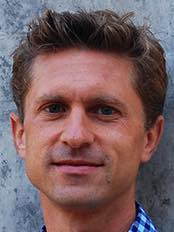Engineer Heiner Litz Wins Faculty Early Career Development Award From National Science Foundation
For research on optimization of storage infrastructure with ML
This is a Press Release edited by StorageNewsletter.com on March 4, 2020 at 2:12 pm Heiner Litz, assistant professor of computer science and engineering, has received a Faculty Early Career Development (CAREER) Award from the National Science Foundation (NSF) to support his work on new strategies for the optimization of storage infrastructure.
Heiner Litz, assistant professor of computer science and engineering, has received a Faculty Early Career Development (CAREER) Award from the National Science Foundation (NSF) to support his work on new strategies for the optimization of storage infrastructure.
His research addresses the challenges of data center systems. The amount of data that needs to be stored and processed is growing, while technologies that have enabled increases in system performance in the past are now reaching their limits. As a result, there is a widening gap between supply and demand for storage capabilities.
“System developers can no longer rely on the continued exponential improvements delivered by silicon technology,” he said, who is associate director of the Center for Research in Storage Systems (CRSS) in the Baskin School of Engineering. “We need new holistic approaches that optimize systems across the entire hardware and software stack to enable the continued growth of storage system capabilities.”
New storage technologies, such as flash and other types of non-volatile memory, can offer some improvements in performance, but they have unique properties that require a redesign of existing system architectures.
“Storage technology is still advancing, but it is becoming more heterogeneous. Things are getting more complex, and we have to adjust the systems to accommodate that,” he said.
He proposes a combination of techniques to address these challenges, including cross-layer optimizations to improve the efficiency of storage systems and make the best use of available resources. A critical element of the project is the use of ML techniques to optimize systems for a given application.
“We can use ML to make storage systems more efficient,” he said.
His approach aims to optimize storage systems across all layers of the system stack, including the hardware architecture, OS design, data center computing, and applications. Instead of completely redesigning the software stack that has been developed over years, he wants to, in effect, poke holes through it to observe and control the underlying systems. ML tools can then be used to increase the flexibility of the system and achieve greater efficiencies.
“These systems use optimization algorithms for things like resource allocation, and ML can enable us to modify those algorithms based on what a specific application needs,” he said. “It creates more flexibility and gives us the opportunity of fine-tuning systems to the applications.”
As part of this effort, he is collaborating with researchers in the storage industry, including Samsung, Western Digital, and Broadcom.
He noted that his experience as a visiting researcher at Google exposed him to the industry’s most challenging and important problems.
He is also incorporating aspects of his research into the curriculum at the Baskin School of Engineering, adding ML elements to courses on computer systems and architecture.
He said he has noticed a lot of interest in ML among female engineering students and hopes to use this to increase the diversity of the systems research field.
“I want to encourage more women to go into this field, and bringing ML into it may help with that,” he said. He is involved in a variety of education and outreach initiatives with UCSC’s Center for Innovation in Teaching and Learning (CITL), Women in Science and Engineering (WISE), and local public schools.
He received his Ph.D. from Mannheim University in Germany and did post-doctoral research at Stanford University. He joined the UCSC faculty in 2017.














 Subscribe to our free daily newsletter
Subscribe to our free daily newsletter

